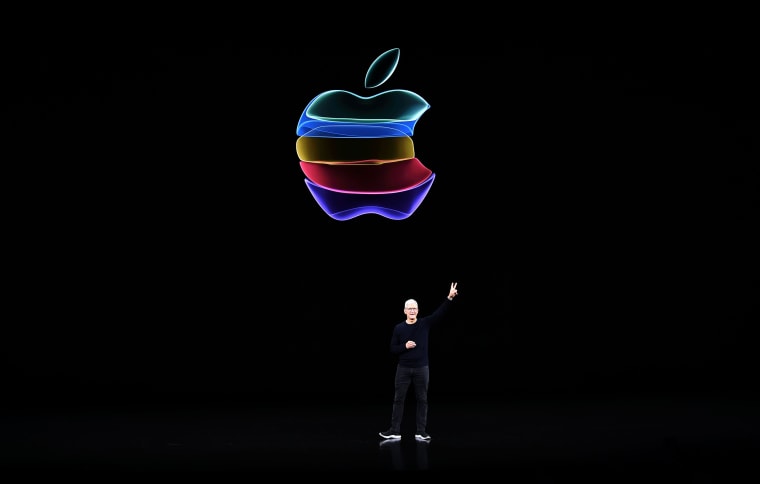The fight between Apple and Epic Games is about to get uglier.
Apple asked a judge on Friday to block Epic's request for a temporary restraining order that would allow the video game-maker to bring "Fortnite" back to the App Store on its own terms.
It's the latest twist in a legal and PR battle that has pitted one of the gaming industry's biggest players against the world's most valuable company. That battle, which comes as Apple faces antitrust scrutiny from the U.S. government and abroad, also underscores questions about the iPhone giant's power.
In Apple's latest argument, which comes ahead of a court hearing on Monday, the company argues that Epic has no legal grounds for forcing its way back into Apple's marketplace until it agrees to play by the rules Apple has always set for developers.
The standoff between the two companies started this month, when Epic installed its own payment system in "Fortnite." The move was an intentional effort to circumvent Apple's in-app payment system to avoid the 30 percent commission that the tech giant has long required from companies that use its service.
Apple responded by removing Fortnite from the App Store. Epic Games, anticipating the move, responded by suing the company for anticompetitive behavior. Since then, Apple has threatened to terminate all of Epic's developer accounts and block the company from making new apps unless it agrees to pay the standard 30 percent commission.
Earlier this week, Epic asked the judge overseeing the case to grant it a temporary restraining order (TRO) against Apple, which would force Apple to reinstate "Fortnite" in its App Store and allow Epic to run its own payment system until the court case is resolved.
Apple is asking that Epic's request be denied, chiefly on the grounds that Epic brought these circumstances upon itself.
"TROs exist to remedy irreparable harm, not easily reparable self-inflicted wounds," Apple's lawyers said in the new legal filing. "All of the injury Epic claims to itself, game players, and developers could have been avoided if Epic filed its lawsuit without breaching its agreements."
"All of that alleged injury for which Epic improperly seeks emergency relief could disappear tomorrow if Epic cured its breach," the filing states.
While Apple’s actions against Epic have been consistent with longstanding App Store policies, the fight from Epic has raised broader questions about whether Apple should have the power to implement whatever fees it wants on a marketplace that has become so essential for developers and integral to the lives of so many people.
Several other big companies are supporting Epic’s efforts. Spotify, which has had its own legal battles with Apple over the 30-percent fee, voiced support for Epic last week. Facebook has also joined that bandwagon, accusing Apple of hurting small businesses by refusing to forgo the commission fee during the coronavirus pandemic.
Several other big companies are supporting Epic’s efforts. Spotify, which has had its own legal battles with Apple over the 30-percent fee, voiced support for Epic last week. Facebook has also joined that bandwagon, accusing Apple of hurting small businesses by refusing to forego the commission fee during the coronavirus pandemic.


